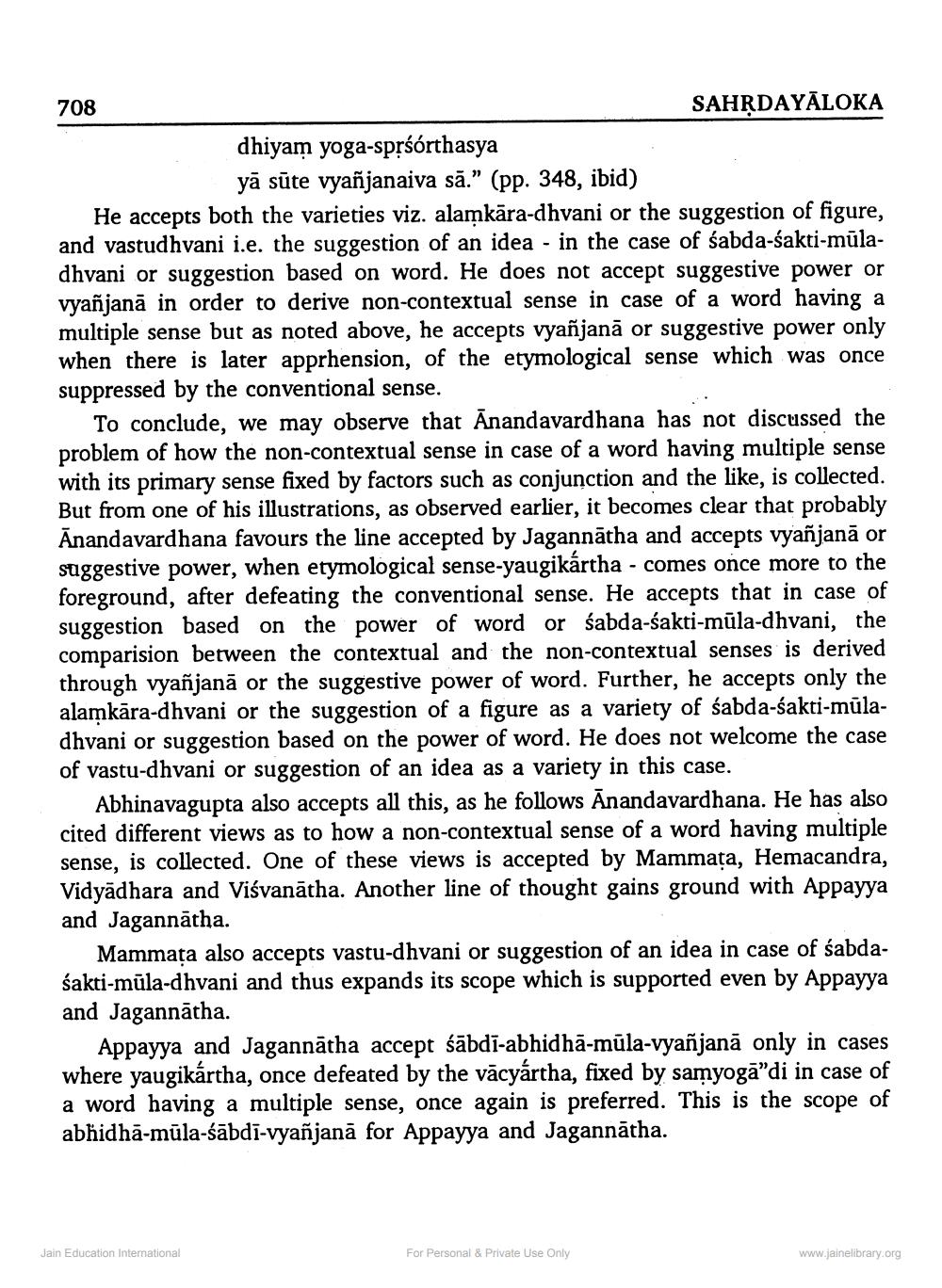________________
708
dhiyam yoga-spṛśórthasya
yā sūte vyañjanaiva sā." (pp. 348, ibid)
He accepts both the varieties viz. alamkara-dhvani or the suggestion of figure, and vastudhvani i.e. the suggestion of an idea in the case of sabda-śakti-muladhvani or suggestion based on word. He does not accept suggestive power or vyañjana in order to derive non-contextual sense in case of a word having a multiple sense but as noted above, he accepts vyañjanā or suggestive power only when there is later apprhension, of the etymological sense which was once suppressed by the conventional sense.
SAHṚDAYALOKA
To conclude, we may observe that Anandavardhana has not discussed the problem of how the non-contextual sense in case of a word having multiple sense with its primary sense fixed by factors such as conjunction and the like, is collected. But from one of his illustrations, as observed earlier, it becomes clear that probably Anandavardhana favours the line accepted by Jagannatha and accepts vyañjanā or suggestive power, when etymological sense-yaugikártha - comes once more to the foreground, after defeating the conventional sense. He accepts that in case of suggestion based on the power of word or sabda-śakti-müla-dhvani, the comparision between the contextual and the non-contextual senses is derived through vyañjana or the suggestive power of word. Further, he accepts only the alamkara-dhvani or the suggestion of a figure as a variety of sabda-śakti-muladhvani or suggestion based on the power of word. He does not welcome the case of vastu-dhvani or suggestion of an idea as a variety in this case.
Abhinavagupta also accepts all this, as he follows Anandavardhana. He has also cited different views as to how a non-contextual sense of a word having multiple sense, is collected. One of these views is accepted by Mammața, Hemacandra, Vidyadhara and Viśvanatha. Another line of thought gains ground with Appayya and Jagannatha.
Mammata also accepts vastu-dhvani or suggestion of an idea in case of sabdaśakti-mula-dhvani and thus expands its scope which is supported even by Appayya and Jagannatha.
Appayya and Jagannatha accept śābdī-abhidha-mula-vyañjanā only in cases where yaugikártha, once defeated by the vācyártha, fixed by samyoga"di in case of a word having a multiple sense, once again is preferred. This is the scope of abhidha-mula-śābdī-vyañjanā for Appayya and Jagannatha.
Jain Education International
For Personal & Private Use Only
www.jainelibrary.org




